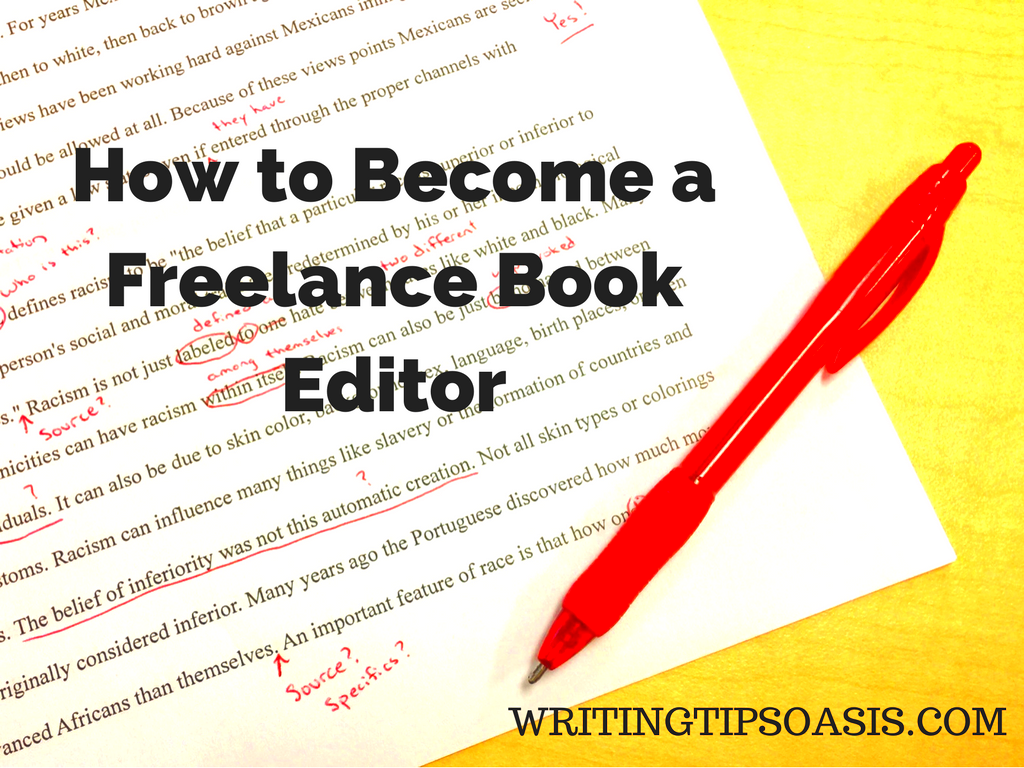Pursuing a career as a freelance book editor can be an incredibly rewarding path. This role encompasses much more than simply correcting spelling mistakes or grammatical flaws; it entails molding and fine tuning a manuscript to ensure that its message is conveyed with clarity and impact. As a freelance editor you will collaborate with writers to enrich their prose enhance the rhythm of their storytelling and refine their final versions. This profession demands attention to detail, a profound grasp of linguistics and the skill to provide feedback that honors the authors unique style.
One of the most fulfilling things about working as a freelance book editor is being able to assist authors in turning their ideas into reality. You’re not simply fixing mistakes; you’re partnering with writers to craft a refined and polished manuscript. This teamwork can be incredibly gratifying, particularly when you witness your input showcased in a completed book.
Essential Skills for Freelance Book Editors

To succeed to a freelance book editor you need a combination of abilities. Here’s a summary of what’s important.
- Attention to Detail: You need to spot even the smallest errors in grammar, spelling, and punctuation. It’s about catching mistakes that might otherwise go unnoticed.
- Strong Command of Language: An in-depth knowledge of grammar, style, and syntax is crucial. You should be familiar with various style guides, such as AP or Chicago.
- Excellent Communication: You must be able to provide clear, constructive feedback and work closely with authors to address their concerns and suggestions.
- Time Management: Freelance editing often involves juggling multiple projects. Being organized and meeting deadlines is key.
- Adaptability: Different projects may require different editing approaches. Being flexible and open to various styles and genres will help you succeed.
In my view these abilities go beyond being skilled at the craft they involve grasping and empathizing with the authors point of view. I recall the importance of honoring the authors unique style while implementing edits during my initial novel editing experience. Finding that equilibrium takes time and perseverance.
Also Read This: How to Change Delivery Date on Fiverr
Steps to Get Started as a Freelance Book Editor

If you’re excited to explore freelance book editing here’s a detailed guide to kickstart your journey.
- Build Your Skills: Invest in courses or workshops that focus on editing. Understanding various editing styles and techniques will give you a solid foundation.
- Create a Portfolio: Start by editing sample texts or working on small projects to build a portfolio. Having tangible examples of your work is crucial for attracting clients.
- Network and Market Yourself: Join writer’s groups, attend literary events, and utilize social media to connect with authors and other editors. Building relationships can lead to opportunities.
- Set Your Rates: Research industry standards and set competitive rates. Remember, your rates should reflect your experience and the quality of your work.
- Find Clients: Look for job listings on freelance platforms, reach out to self-publishing authors, and consider collaborating with literary agents or publishers.
- Manage Your Workflow: Develop a system for tracking your projects, deadlines, and client communications. Good organization is key to a successful freelance career.
Beginning your career as a freelance editor can feel daunting yet it’s an exhilarating path to embark on. I remember my initial projects where balancing client expectations and time management proved to be tough but fulfilling. With every move you make you get closer to making your mark in this dynamic industry.
Also Read This: Top 10 Languages Translators on Fiverr
Finding Clients and Building a Portfolio

Building a client base and creating a strong portfolio are essential for establishing yourself as a freelance book editor. At first it might seem challenging but with the strategy it becomes both feasible and fulfilling. Your portfolio serves as your calling card highlighting your abilities and enticing potential clients. Here are some steps to help you get started.
- Start with Small Projects: Offer to edit manuscripts for friends or local authors. These initial projects help build your portfolio and provide valuable experience.
- Join Freelance Platforms: Websites like Fiverr or Upwork are great places to find freelance editing jobs. Create a compelling profile and showcase your skills with sample edits.
- Network with Authors: Attend literary events, book fairs, or writing workshops. Networking with authors and other professionals in the industry can lead to potential clients.
- Create a Professional Website: A well-designed website with a portfolio section can make a significant impact. Include samples of your work, client testimonials, and a clear description of your services.
- Reach Out to Literary Agents and Publishers: Establishing connections with literary agents or publishers can lead to referrals and more substantial projects.
Based on my own journey I discovered that providing a couple of complimentary revisions at the start helped me establish credibility and enhance my standing. I recall my initial client was referred to me by a friend who had released a book. Working on that project not only boosted my confidence but also enriched my portfolio.
Also Read This: Most Useful Method: Choosing the Right Gig Title for Sketching on Fiverr
Setting Your Rates as a Freelance Book Editor

Determining your rates as a freelance book editor can be tough. It’s important to find the sweet spot between staying competitive and recognizing the worth of your work. Here’s a helpful guide to assist you in figuring out your pricing:
- Research Industry Standards: Look into the average rates for freelance book editors in your region and niche. Rates can vary based on experience, genre, and complexity.
- Consider Your Experience: If you’re just starting, you might need to set lower rates initially to attract clients. As you gain experience and build a reputation, you can gradually increase your rates.
- Determine Your Pricing Model: Decide whether you’ll charge by the hour, by the page, or by the word. Each model has its pros and cons, so choose the one that aligns with your workflow and client expectations.
- Factor in Your Costs: Remember to account for your overhead costs, such as software subscriptions, internet, and other business expenses when setting your rates.
- Be Transparent: Clearly communicate your rates to clients and outline what’s included in your services. This helps avoid misunderstandings and builds trust.
I’ve come to realize that being transparent about my fees and the worth I bring to the table is essential. In the beginning I set my rates to attract clients and gradually increased them with my growing expertise. It’s a delicate balance but vital for achieving lasting success.
Also Read This: What is a Source File on Fiverr?
Managing Your Time and Workflow
Managing your time efficiently and keeping your tasks in order are crucial for thriving as a freelance book editor. Juggling several projects and deadlines can be daunting but by adopting a methodical strategy you can make it work smoothly. Here’s a guide on how to optimize your process:
- Develop a Schedule: Create a daily or weekly schedule to allocate specific times for editing, client communication, and personal time. Consistency helps in managing deadlines and maintaining work-life balance.
- Use Project Management Tools: Tools like Trello, Asana, or even simple spreadsheets can help track your projects, deadlines, and progress. They provide a clear overview of your tasks and priorities.
- Set Realistic Deadlines: Be honest about how long tasks will take and avoid overpromising. It’s better to underpromise and overdeliver than the other way around.
- Organize Your Workspace: A clutter-free workspace can improve focus and efficiency. Keep your editing tools, reference materials, and project files well-organized.
- Take Breaks: Regular breaks are essential to avoid burnout. Short breaks during editing sessions can help maintain productivity and creativity.
In my opinion managing time efficiently means discovering what suits you. Initially I faced challenges in juggling several tasks at once but I realized that having an organized timetable and utilizing project management software greatly helped me out. Its all about establishing a framework that enhances your efficiency and keeps you inspired.
Also Read This: How to Find Jobs on Fiverr: A Comprehensive Guide
Handling Contracts and Payments
Dealing with contracts and payments can be challenging but it’s a crucial aspect of freelancing that ensures smooth interactions with clients. A contract safeguards the interests of both parties involved and establishes clear expectations. Here’s a guide on how to approach this vital element of freelance book editing.
- Draft a Clear Contract: Your contract should outline the scope of work, deadlines, payment terms, and any other relevant details. Be clear about what’s included and what’s not to avoid misunderstandings.
- Specify Payment Terms: Decide whether you’ll charge a flat fee, hourly rate, or per page/word. Specify when payments are due—upfront, upon completion, or in installments. Include late payment penalties if necessary.
- Use Professional Invoicing: Create and send professional invoices to clients. Include details like your business name, contact information, and a breakdown of services rendered. Tools like FreshBooks or QuickBooks can simplify this process.
- Set Up a Reliable Payment System: Choose a payment method that works for you and your clients, whether it’s bank transfers, PayPal, or another service. Ensure it’s secure and convenient for both parties.
- Communicate Clearly: Keep open lines of communication regarding any changes in the contract or payment delays. Address issues promptly to maintain a positive working relationship.
When I embarked on my freelancing journey dealing with contracts and payments seemed daunting. I quickly realized the importance of having a contract and a dependable payment system to prevent conflicts and receive payments on time. Putting in some work in this aspect can significantly impact your freelancing path.
Also Read This: Does Fiverr Have an Affiliate Program?
Continuing Education and Professional Growth
In the realm of freelance book editing keeping abreast of industry trends and honing your skills is crucial for achieving lasting success. Ongoing learning and personal development not only boost your capabilities but also maintain your competitiveness in the field. Here are some ways to continue advancing:
- Attend Workshops and Webinars: Participate in editing workshops, webinars, or online courses to learn new techniques and stay updated on industry standards.
- Read Industry Books and Journals: Keep up with books and journals on editing and publishing. They provide valuable insights into emerging trends and best practices.
- Join Professional Associations: Organizations like the Editorial Freelancers Association (EFA) or the American Society of Journalists and Authors (ASJA) offer resources, networking opportunities, and professional development.
- Seek Feedback: Regularly ask for feedback from clients and peers. Constructive criticism helps you identify areas for improvement and grow as an editor.
- Explore Specializations: Consider specializing in a particular genre or type of editing, such as academic, technical, or fiction. Specializing can set you apart and open new opportunities.
Through my personal experiences, I’ve discovered that putting effort into advancing ones career is truly fulfilling. I recall participating in a session focused on editing methods that greatly enhanced my abilities and self assurance. Constantly seeking knowledge not only fuels your motivation but also helps you stay competitive in your field.
Also Read This: Can You Buy Fiverr Clicks? Exploring the Pros and Cons
FAQ
1. How do I find my first clients as a freelance book editor?
Begin by reaching out to friends or nearby writers to offer your writing services. Sign up on freelance websites set up a polished website for yourself and connect with others in the literary world. Nurturing connections and displaying your skills through an impressive portfolio can help you win over potential clients.
2. What should I include in my editing contract?
Make sure your agreement outlines the work to be done, timelines, payment details and any other conditions such as rules for revisions. Well defined terms help avoid confusion and ensure that both sides are aligned.
3. How do I determine my rates as a freelance book editor?
Look into what the industry norms are and take your level of expertise into account. Determine whether you want to charge based on the time spent, the number of pages or the word count. Be clear with your clients about what your fees cover to prevent any misunderstandings.
4. How can I manage multiple editing projects effectively?
Create a timetable to divide your time among different projects. Utilize project management software to monitor due dates and track advancements. Keep things orderly and maintain clear communication with clients to set expectations and prevent overwhelming yourself.
5. What are some ways to continue improving my editing skills?
Participate in training sessions, explore relevant literature, become a member of industry organizations and gather input from customers and colleagues. Ongoing education and growth are essential to maintain a competitive edge and enhance your skills.
Conclusion
Starting a career as a freelance book editor is an adventure full of both opportunities and hurdles. It takes more than just a love for books and a keen eye for details; it also requires a commitment to lifelong learning and adaptability. From seeking out clients and creating a strong portfolio to establishing rates and managing your schedule every move you make plays a role in shaping your freelance journey. Personally speaking I've discovered that the path of editing books is not only about advancing professionally but also fostering personal growth. Each manuscript you work on brings fresh perspectives and valuable experiences. Keep in mind that achieving success in freelancing demands perseverance and a true passion for the art. Embrace every challenge, as an opportunity to enhance your skills and savor the fulfilling experience of assisting authors in bringing their stories to life.




